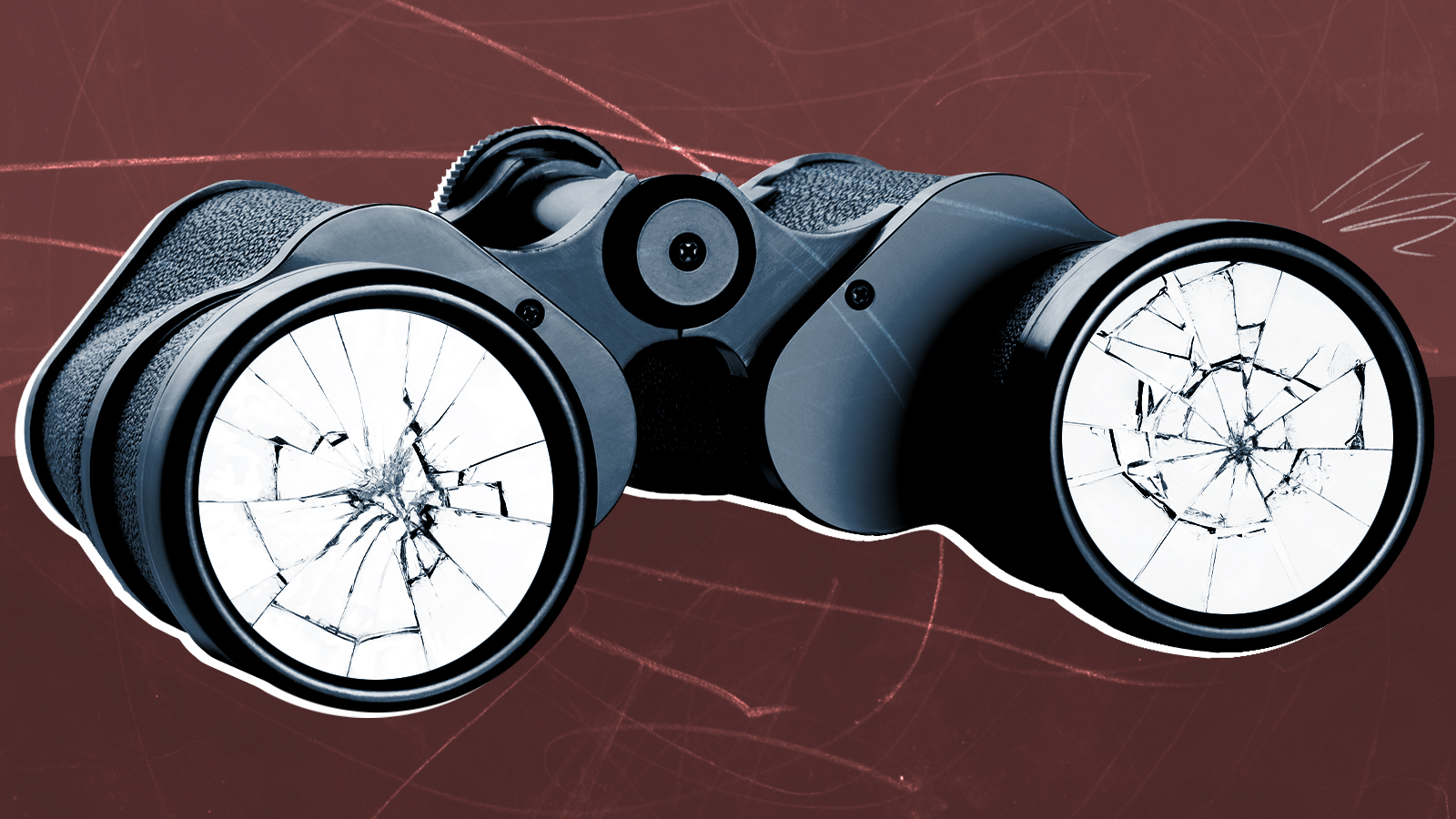The polls don't work — and that's a good thing


A free daily email with the biggest news stories of the day – and the best features from TheWeek.com
You are now subscribed
Your newsletter sign-up was successful
The polls in the 2020 election were wrong, bigly. That's according to a postmortem report issued by the American Association of Public Opinion Research (AAPOR). After reviewing nearly 3,000 surveys, researchers found that national polls overestimated Joe Biden's support by an average of 3.9 percent, while state polls were off by 4.3 percent. These errors of "unusual magnitude" were the biggest miss since 1980, when polls understated Ronald Reagan's support by eight points.
The report takes the problem more seriously than more defensive responses from within the polling industry. It also admits that scholars still don't understand what went wrong.
Immediately after the election, some pollsters speculated that "shy Trump voters" who falsely reported supporting Biden might have skewed their results. The report finds little evidence for this hypothesis. Instead, it suggests many Republican voters did not respond to surveys at all, leading to unrepresentative samples of the electorate.
The Week
Escape your echo chamber. Get the facts behind the news, plus analysis from multiple perspectives.

Sign up for The Week's Free Newsletters
From our morning news briefing to a weekly Good News Newsletter, get the best of The Week delivered directly to your inbox.
From our morning news briefing to a weekly Good News Newsletter, get the best of The Week delivered directly to your inbox.
Trump voters' resistance to polling is consistent with evidence that they had lower trust in social institutions. It could also be a consequence of Trump's campaign against "fake news." Whatever the cause, polling doesn't work when refusal to participate in polls is strongly correlated with candidate or party preference. You can't find out what the people think when half of them won't share their opinions.
The diminishing reliability of polls is bad news for campaign journalists and political consultants, but it's good news for the rest of us. Uncertainty about polls could liberate unconventional candidates to pursue ostensibly unpopular positions and novel strategies. It might also encourage turnout by keeping voters' hopes for improbable victory alive. Facing the risk of massive error, even candidates who are heavily favored can't take their core supporters for granted.
Best of all, the polling failures in 2020 (and 2016) help dispel the illusion that politics is a predictive science best practiced by highly-trained technicians. Quantitative data have a role in predicting electoral outcomes. But they don't replace historical understanding, local knowledge, and sheer intuition. Candidates and advisors who have these virtues are more important than sophisticated statistical instruments. As the saying goes, there's only one poll that matters: the one on election day.
A free daily email with the biggest news stories of the day – and the best features from TheWeek.com
Samuel Goldman is a national correspondent at TheWeek.com. He is also an associate professor of political science at George Washington University, where he is executive director of the John L. Loeb, Jr. Institute for Religious Freedom and director of the Politics & Values Program. He received his Ph.D. from Harvard and was a postdoctoral fellow in Religion, Ethics, & Politics at Princeton University. His books include God's Country: Christian Zionism in America (University of Pennsylvania Press, 2018) and After Nationalism (University of Pennsylvania Press, 2021). In addition to academic research, Goldman's writing has appeared in The New York Times, The Wall Street Journal, and many other publications.
-
 How the FCC’s ‘equal time’ rule works
How the FCC’s ‘equal time’ rule worksIn the Spotlight The law is at the heart of the Colbert-CBS conflict
-
 What is the endgame in the DHS shutdown?
What is the endgame in the DHS shutdown?Today’s Big Question Democrats want to rein in ICE’s immigration crackdown
-
 ‘Poor time management isn’t just an inconvenience’
‘Poor time management isn’t just an inconvenience’Instant Opinion Opinion, comment and editorials of the day
-
 Epstein files topple law CEO, roil UK government
Epstein files topple law CEO, roil UK governmentSpeed Read Peter Mandelson, Britain’s former ambassador to the US, is caught up in the scandal
-
 Iran and US prepare to meet after skirmishes
Iran and US prepare to meet after skirmishesSpeed Read The incident comes amid heightened tensions in the Middle East
-
 Israel retrieves final hostage’s body from Gaza
Israel retrieves final hostage’s body from GazaSpeed Read The 24-year-old police officer was killed during the initial Hamas attack
-
 China’s Xi targets top general in growing purge
China’s Xi targets top general in growing purgeSpeed Read Zhang Youxia is being investigated over ‘grave violations’ of the law
-
 Panama and Canada are negotiating over a crucial copper mine
Panama and Canada are negotiating over a crucial copper mineIn the Spotlight Panama is set to make a final decision on the mine this summer
-
 Why Greenland’s natural resources are nearly impossible to mine
Why Greenland’s natural resources are nearly impossible to mineThe Explainer The country’s natural landscape makes the task extremely difficult
-
 Iran cuts internet as protests escalate
Iran cuts internet as protests escalateSpeed Reada Government buildings across the country have been set on fire
-
 US nabs ‘shadow’ tanker claimed by Russia
US nabs ‘shadow’ tanker claimed by RussiaSpeed Read The ship was one of two vessels seized by the US military
